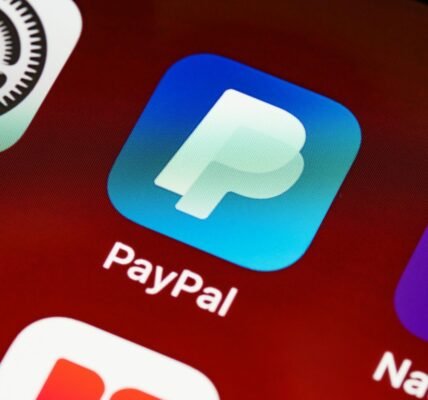The Storm in a Beer Can
Once the undisputed king of American beers, Bud Light has found itself in the eye of a cultural storm. A marketing decision that aimed to appeal to a wider audience has instead sparked a fierce backlash, sending shockwaves through the beverage industry and igniting a national conversation about brand identity, consumer loyalty, and the power of social media.
The Catalyst: A Partnership Gone Awry
The controversy erupted in April 2023 when Bud Light partnered with transgender influencer Dylan Mulvaney. The campaign, which included customized beer cans featuring Mulvaney’s image, was met with a swift and intense backlash from a significant portion of the consumer base. Social media exploded with calls for boycotts, with many consumers expressing disappointment and anger over what they perceived as a betrayal of the brand’s core values.
The Fallout: A Perfect Storm
The consequences of the backlash were immediate and severe. Sales plummeted, and Bud Light lost its position as the top-selling beer in the United States. The controversy also triggered a broader cultural debate about gender identity, corporate responsibility, and the influence of social media on consumer behavior.
The Economic Impact
The financial implications of the Bud Light crisis are substantial. Anheuser-Busch InBev, the parent company, has reported significant revenue declines, and the brand’s market share has eroded rapidly. The loss of Bud Light’s top spot has created opportunities for competitors, with brands like Modelo Especial and Modelo Negra gaining market share.
The Consumer Perspective
The Bud Light controversy has exposed a deep divide among consumers. While some vehemently support the brand’s decision to embrace inclusivity, others feel betrayed and have vowed never to purchase Bud Light again. The incident has highlighted the importance of understanding and responding to consumer sentiments, particularly in an era of highly polarized opinions.
The Brand’s Response
In the aftermath of the controversy, Bud Light has faced criticism for its handling of the situation. Some argue that the company was slow to respond and failed to adequately address the concerns of its core customer base. While Anheuser-Busch has attempted to regain consumer trust through various initiatives, including advertising campaigns and community outreach, the road to recovery is likely to be long and challenging.
The Role of Social Media
Social media played a pivotal role in amplifying the Bud Light controversy. The rapid spread of misinformation and disinformation, coupled with the power of online communities to mobilize and organize boycotts, created a perfect storm for the brand. The incident underscores the importance of effective social media management and crisis communication for businesses.
Lessons Learned
The Bud Light case serves as a cautionary tale for brands seeking to expand their customer base. While inclusivity and diversity are essential values, it is equally important to maintain alignment with core brand identity and consumer expectations. The incident also highlights the risks of relying solely on social media metrics to guide marketing decisions, as algorithms can create echo chambers and distort public opinion.
The Future of Bud Light
The long-term impact of the Bud Light controversy remains uncertain. While the brand faces significant challenges, it also has an opportunity to rebuild trust and emerge stronger. By carefully listening to consumers, adapting its marketing strategy, and demonstrating a genuine commitment to its customers, Bud Light may be able to regain its former glory.
Key Takeaways
- The Bud Light controversy is a complex issue with far-reaching implications.
- The incident has sparked a national conversation about brand identity, consumer loyalty, and the power of social media.
- The financial impact on Anheuser-Busch has been significant, and the brand faces a challenging road to recovery.
- The controversy highlights the importance of understanding and responding to consumer sentiments.
- Social media played a critical role in amplifying the crisis.
FAQs
What happened to Bud Light?
Bud Light faced a significant backlash after partnering with transgender influencer Dylan Mulvaney in April 2023. This led to a widespread boycott, resulting in a steep decline in sales and the loss of its position as the top-selling beer in the United States.
Why did Bud Light partner with Dylan Mulvaney?
The partnership was part of Bud Light’s attempt to appeal to a wider audience and promote inclusivity. However, the campaign was met with strong opposition from a significant portion of the consumer base.
How much did Bud Light sales decline?
Bud Light experienced a substantial decline in sales following the controversy. While exact figures vary by source, it is clear that the brand suffered significant losses.
How has Anheuser-Busch responded to the crisis?
Anheuser-Busch, the parent company of Bud Light, has implemented various strategies to recover lost sales, including advertising campaigns and increased support for distributors. However, the road to recovery is challenging.
What impact has this had on the beer industry?
The Bud Light controversy has reshaped the beer market, with competitors like Modelo Especial gaining market share. It has also sparked discussions about brand identity, consumer loyalty, and the influence of social media.
Will Bud Light recover?
While the future of Bud Light is uncertain, the brand has an opportunity to rebuild trust and regain its market position.
Conclusion: A Brand in Transition
The Bud Light saga is more than just a story about a beer brand; it’s a case study in the complexities of modern marketing, the power of social media, and the delicate balance between corporate values and consumer expectations. The once-unassailable dominance of Bud Light has been challenged in a way that few could have predicted, forcing the brand and its parent company to navigate uncharted waters.
The road to recovery will undoubtedly be arduous. Rebuilding trust, reconnecting with a core audience, and adapting to a rapidly changing consumer landscape will require strategic thinking, genuine empathy, and a long-term perspective. The Bud Light story is far from over, and its outcome will have significant implications for the beverage industry and the broader business world.
To read more, click here.




